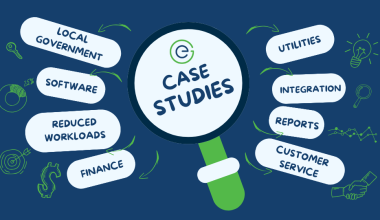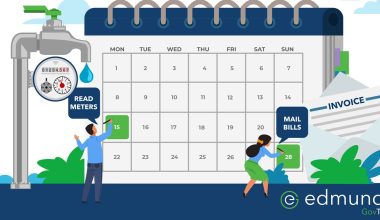Over the course of the past few months, I’ve been conducting the 2019 Utility Fee Survey. This is an update to the original Utility Fee Survey in 2012 and subsequent fee surveys in 2015 and 2017. The survey was designed to research what fees utilities charge, how much they charge for each fee, and to see what trends, if any, are occurring with fees.
The Utility Fee Survey has become a biennial survey, alternating years with the Utility Staffing Survey.
This is the first of three consecutive blog posts publishing the results of the 2019 Utility Fee Survey. The other two installments will be published on October 15 and 29.
Demographics of survey respondents
135 utilities (a 14.4% increase from 2017), representing 22 states (a 15.8% increase from 2017), ranging in size from 89 to 539,000 active accounts participated in the survey. Click on the links below to see charts of the various demographic data:
- Number of responses by state
- Size of participating utilities
- Size of participating utilities under 20,000 accounts
- Types of utilities responding
- Services provided by responding utilities
- Positions of individuals completing survey
Tap fees and impact fees
The survey started with water and sewer tap and impact fees. There are some key distinctions to bear in mind when comparing tap and impact fees.
Tap fees should recover the cost of making the actual water or sewer tap. This includes direct costs such as labor, materials, and vehicle use as well as any indirect costs associated with completing the tap. Tap fees are classified as operating revenues.
Impact fees, sometimes called availability fees or system development charges, are designed to cover the incremental capital cost of adding an additional user to the water or sewer system. Impact fees are classified as non-operating revenues.
For utilities charging an impact fee based on number of bedrooms, monthly or daily usage, square footage, or lot size, I assumed three bedrooms or 3,000 gallons per month or 1700 square feet or one-quarter of an acre.
Residential water tap fees charged by utilities responding to the survey range from $150.00 to $10,925.00 as shown below:
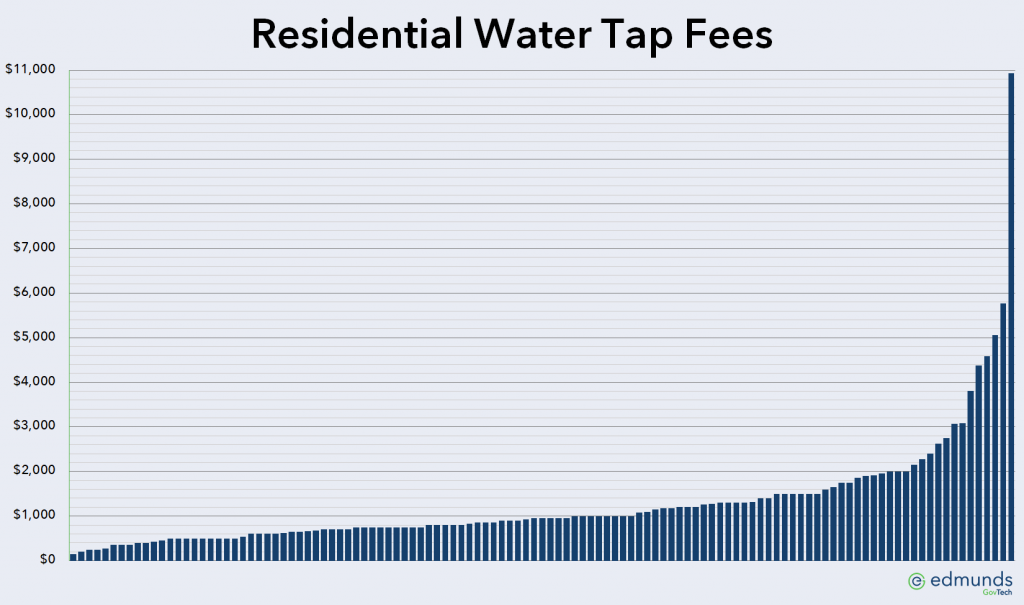
One other utility charges based on the time and materials cost incurred for a residential water tap at actual cost.
Utilities responding to the survey charge residential sewer tap fees ranging from $75.00 to $6,300.00 as depicted by this graph:
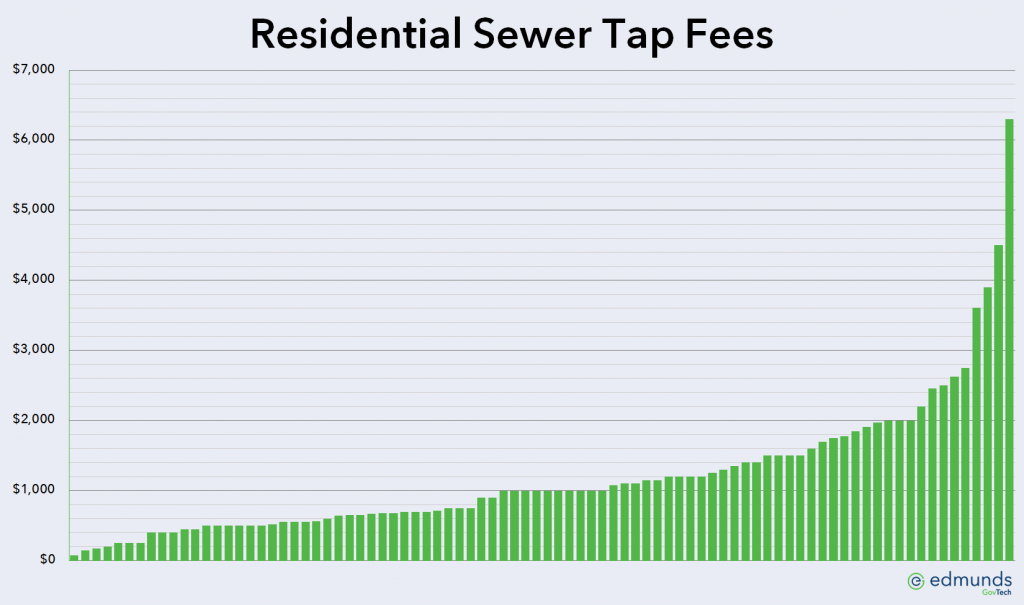
One additional utility charges the actual time and materials cost incurred for a residential sewer tap.
Residential water impact fees charged by utilities responding to the survey range from $11.60 to $4,000.00 as shown in this graph:
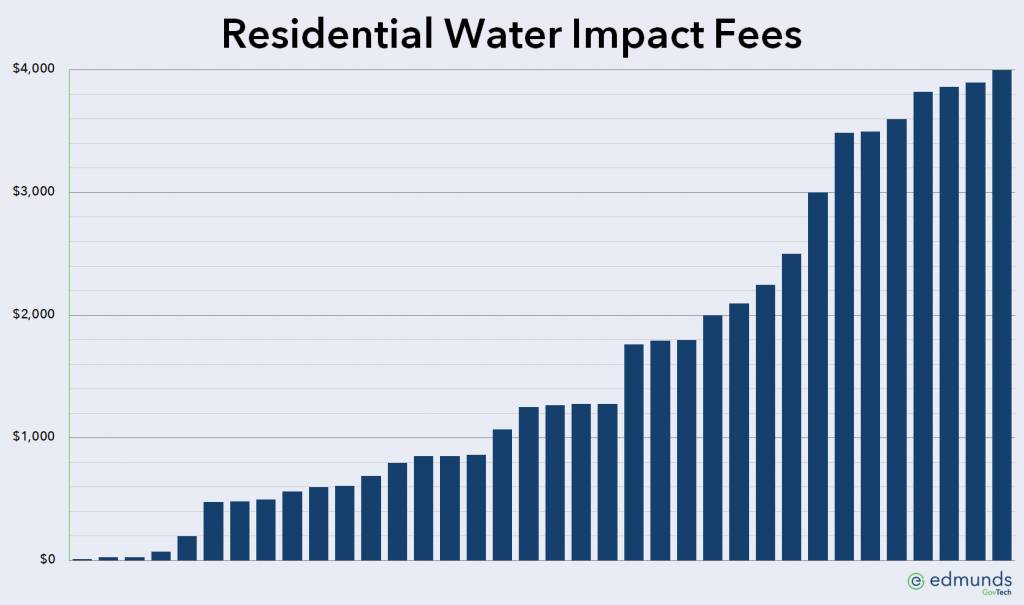
One additional utility charges water impact fees to commercial customers based on the type of business.
Utilities responding to the survey charge residential sewer impact fees ranging from $50.00 to $5,540.00 as shown here:
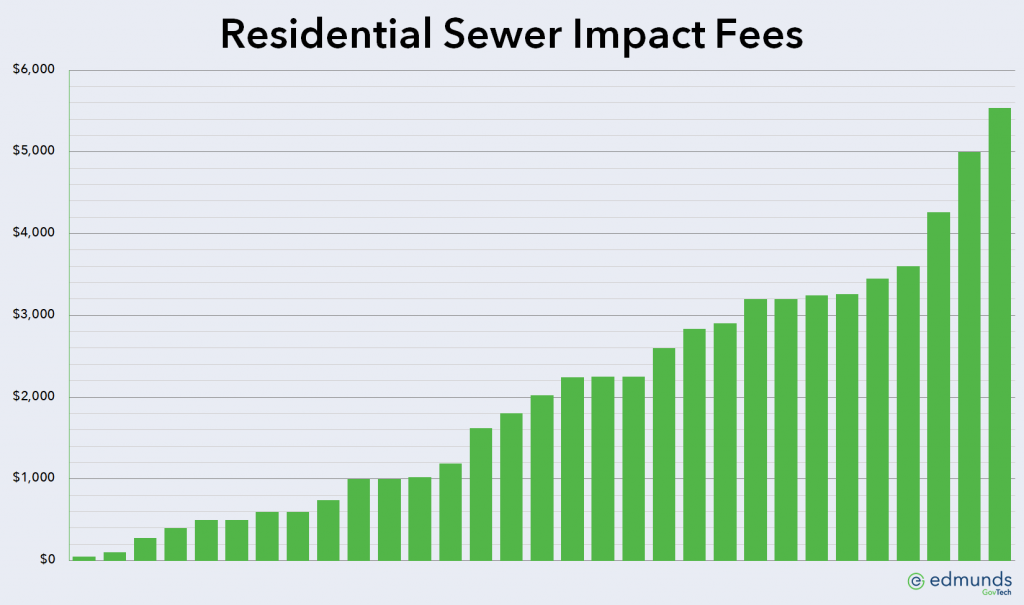
One additional utility charges sewer impact fees to commercial customers based on the type of business.
Upcoming issues
The next issue will deal with delinquent account fees and policies, including late fees, cut-off fees, and after-hours reconnect fees.
The final survey results issue showcases any remaining fees, including application, returned check, meter reread, meter tampering, and convenience fees.
A special offer
I’m offering a special offer to the first five Utility Information Pipeline readers who respond. If you are one of the first five to respond, I will conduct a personalized fee consultation for one-third off the regular price. That’s $1,000 rather than the usual $1,500 price for this service!
I will review your utility’s current fee schedule and conduct an in-depth phone assessment to learn more about your fees. You will receive a presentation quality document illustrating how your fees compare with other utilities. Also included will be my recommendations for revising any existing fees and suggestions of new fees you should consider charging.

